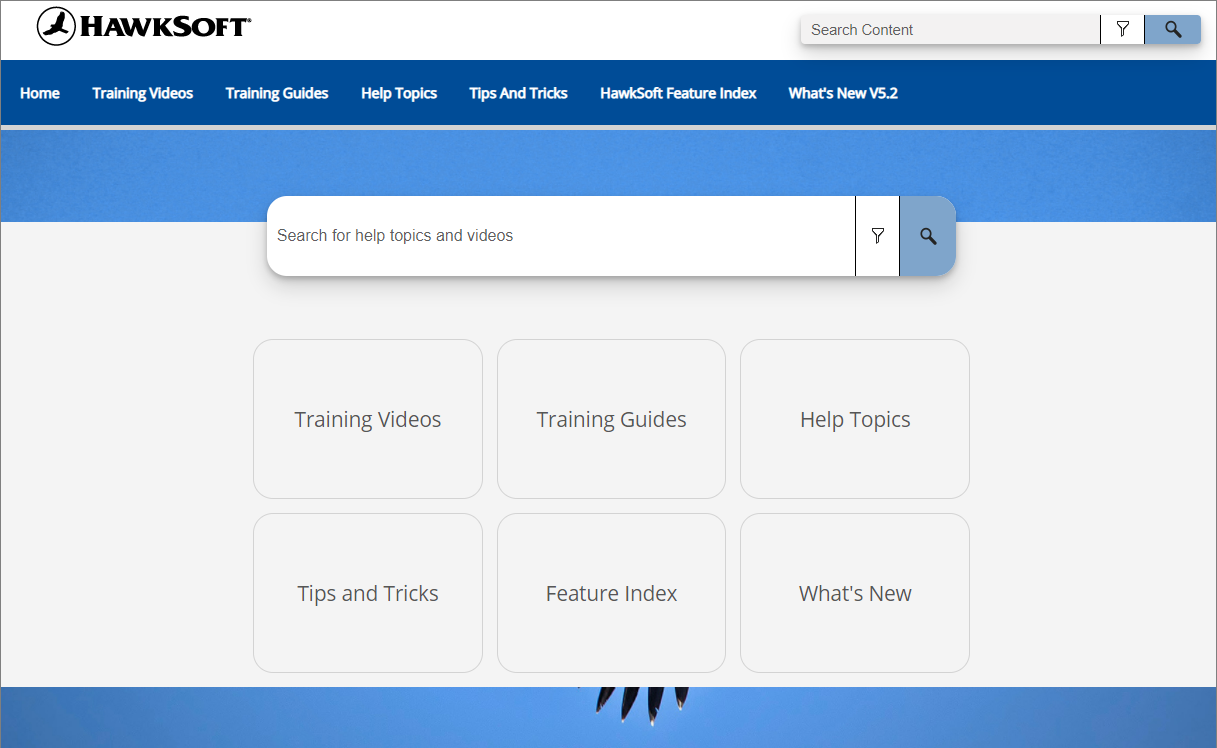Source: Shutterstock
There are a lot of Ds in the insurance industry lingo these days. The most concerning is talk about the demise of the independent insurance agent due to InsurTech disruptors like direct sellers and digitalization. Not to mention the change in consumer demands and the increasing need for direct marketing. And we can’t forget the debilitating impact of data breaches and natural disasters. Are you getting the picture?
The Big D of Differentiation
Differentiation is a hot buzzword. But it means nothing unless you take action to differentiate yourself, your brand, and your service to compete with InsurTech startups.
Source: Shutterstock
A great podcast by Agency Nation, How to Differentiate Your Insurance Agency from the Competition, features a relevant discussion on the challenges agencies face and how to counter them with differentiation. Here are two key takeaways from Ryan Hanley and Marty Agather’s podcast.
1. Agents need to use technology to improve distribution and marketing
Accenture states in an article from their Insurance Blog that InsurTech entrants focus 56% of their efforts on disrupting distribution and marketing. Why? Because they know the vast majority of insurance agents are old school and are not capitalizing on how consumers connect today: online.
Agents know they need to adapt their marketing and distribution efforts to capture online buyers, but only half are doing it. Marty Agather of TrustedChoice affirms that those who fail to adapt are ripe pickings. “They are the lame impala at the side of the herd. What are the lions doing? They’re picking off the weak and the slow.”
Studies show 60-70% of the buyer’s journey takes place before the person ever talks to a representative of the company. If your website is not optimized for SEO and doesn’t offer unique content to buyers researching risk management, you are going to be slowly picked off like the lame impala.
Differentiation starts by publicizing your true personality

Source: Shutterstock
Well, this might not quite be the persona you want, but you get the picture.
Let your unique personality shine through.
2. Differentiation starts with these four steps
- Publicize your true personality. What persona and image do you want your agency to portray? People buy from those they connect with, which is largely driven by your online packaging and presentation. Maybe you need to repackage your website, bio, photos, and content so it more accurately portrays who you are to your target audience.
- Focus on your specialties. No one believes an agent is an expert at everything. Find your niche and become the expert in your area so that everyone within a 200-mile radius knows that you are the go-to person for that type of risk management.
- Get on board with 24/7 availability. Show you care and are available, even after hours. You don’t necessarily have to be the one fielding calls or inquiries. Consider contracting with an after-hours call center. The consumer must be able to access your agency whenever they want.
- Become an educator, not a seller. People turn to those they trust and view as experts who can guide them in the right direction. If you can bring your expertise in a non-selling fashion and deliver something of value, you will build trust and deeper relationships with existing customers and prospects. Volunteer to lead webinars, teach CE classes, and run local informational seminars. Write articles for your blog, other people’s blogs, and publications. Sales are won because of relationships when what you are selling is a semi-commodity.
3 examples of how agencies can differentiate
Marty shares an example of Denny Christner’s agency, who nailed these differentiators: 1) figured out his unique personality and publicized it, 2) found his insurance specialty (food trucks), and 3) provides expert education on his homepage that screams “I understand your business better than anyone else and care about your business”. Look how great his ABOUT ME description is, with only 111 words and two pictures:
- Instantly personable and light-hearted (did you catch his clever food word substitution in the 2nd sentence?)
- Sums up his specialty of food businesses, restaurants, and food trucks
- Shows his passion about the food industry and why he wants to help
- Shows a fun picture of his family to give a glimpse into “outside of work” life
Denny’s website is inviting, educates the reader, showcases his unique personality, and doesn’t feel like all the other insurance agent websites. And who doesn’t love to see a live video of succulent hamburgers frying on the grill or chocolate chip cookies while they shop for insurance?
Source: Insuremyfoodtruck.com
All of Rough Notes’ Agency of the Year candidates offer ideas on being successful by differentiating. Here are two highlights:
- Preferred Insurance Center of Coldwater, Ohio, used the color pink to differentiate. They have built relationships and connected with their community through the color pink. What started off as a "Year of Giving Back" initiative to thank the community for 100 years of support turned into a unique differentiator called "Flamingo Flocking". It raised brand awareness in the community, supported local charities, and resulted in an unexpected benefit of creating a referral pipeline. Preferred Insurance Center’s new culture of giving led to relationship building that, as a byproduct, doubled revenue from $500,000 to $1M.
- The Thompson Group of Indiana has embraced differentiation by going retro. Literally. Their company car, a 1970 psychedelic tie-dye VW bus, screams hippy.

Source: Rough Notes
The two owners are called “Ninja” and “Queen”. Ninja always wears a T-shirt under a sports coat to client meetings and makes sure a human answers the phone 24/7. They work to “Find the Pain, Heal the Pain, Show the Love” by following a 3-step audit process that focuses on relationship building instead of selling. They have quirky marketing like leaving a guitar pick instead of a business card. The pick says “We Pick Our Clients”. It’s working. They have prospects in 26 states and have grown revenue to $2.3M.
Insurance is a relationship business
Identify what asset you want to be known for and deliver your message, brand, and service around that. Will it be your knowledge of a specific risk, use of cutting-edge technology, uniquely qualified staff, after-hours availability, or your ability to summarize changes to risk management in simple and engaging language?
What makes you different than every other agency in town? What makes you more interesting? What stories can you share to back these claims?
The key to differentiation is to not be like everyone else
Try this eye-opening Differentiation/Competitor challenge that Mike Manes did in “Differentiation – Real Advantage or a Lie?” to gauge if your website and marketing collateral distinguishes you as truly different from your competitors. We put HawkSoft’s website to the test and learned we have at least one distinguishing differentiator from our competitors: we share KPIs (key performance indicators) to quantify our differences.
- 18 years is the average time agencies stay on HawkSoft’s management system
- 94% first-call resolution when people call us for help
- 97% recommendation rate by agencies that use our system
Manes’ challenge is quite an “ah-ha” moment that might compel you to repackage your brand.
Disrupt the disruptors

Source: Shutterstock
Be an opportunist and view this attempt at disruption as a ready-made occasion to differentiate ourselves and our agencies from the rest of the marketplace. (Rough Notes)
Why should InsurTech startups have all the fun with the label of “disruptor”? Choose to be an opportunist and figure out how to disrupt the disruptor.
Rethink how you connect
Just because something has worked for 20 years doesn’t mean it’s still good. The old cliché of “if it’s not broken, don’t fix it” will not work in this new consumer-driven era of digital connection.
Paul Hawkins, a well-respected industry thought leader, shares his thoughts on this very topic in the Michael Jans Connected Insurance Podcast. Hawkins says that one of the biggest changes in the insurance industry is how the consumer is different from 25 years ago. “They have different tools, interests, and expectations. And behind that, there is all of this new technology....even Grandpas and Grandmas are Facebooking.”
Consumers are in the driver’s seat and the winner will be whomever figures out how to best apply technology to connect with the consumer’s journey and capture the “relationship”.
How to use insurance technology to add value
The real differentiator is how you will use technology to add value and more easily connect with customers and prospects.
Microsoft aired a powerful commercial during the 2018 Olympics that hits the nail on the head:
“It’s not about what technology can do, it’s about what you can do with it.
It’s possibility. It’s capability. It’s adaptability.
But in the end, it’s only a tool. What’s a hammer without a person to swing it? When you’re the voice. It’s the microphone. When you’re the artist. It’s the paintbrush.”
When you’re the agent. It’s the _________. (fill in the blank)

Source: Shutterstock
Use email marketing to connect and stay in front of your customers and prospects. Send personalized messages for life events. Provide education about supplemental insurance. Don’t sell, but instead connect through personalization and education.
Automate to increase productivity and be proactive to reduce costs. Invest in and maximize the use of an agency management system. Using technology to automate claims downloads, tasks and reminders, quotes, etc. allows you to offer services and solutions before your client may even realize they need to know. Being proactive positions your agency as being on top of it in the minds of clients.
Use data and analytics. Today’s technology delivers so much data at your fingertips. The right metrics should easily help you determine what’s working and not working in your agency’s marketing, sales, retention, and production strategies. It can take your business to the next level.
Optimize your website. Update your website’s design. Optimize for search engines. Figure out how to increase traffic to your website. Perhaps this is a task you outsource or hire a SEO-savvy firm who is willing to come in on a pay-for-performance model. They are very hard to find, but they do exist.
“There are two ways you get traffic to your website. You either pay for it (advertising), or you earn it (blogging and social media). Both have a cost.”
Becky Schroeder, ITC
Participate in social media. If over 70% of consumers are researching online, you have to be searchable. Set up a company page for Facebook, LinkedIn, and Twitter. Join your local community Facebook page. Residents use these sites to post and inquire with others about services and reputations of companies. If you don’t participate, you could be missing prime opportunities to respond when residents ask about who they’d recommend for homeowners, auto, rental, or farm insurance coverage.
Be available 24/7 - contract with a call center. As mentioned in Agency Nation’s podcast, provide a way for customers and prospects to get in touch with you when they want. You have to figure out how to accommodate this new digitally-centric, consumer-driven behavior that dictates when and how they want to buy insurance. If you are accessible and the process is simple, you will be sought after.
Get mobile optimized and app friendly. Listen to this ACT podcast with Matt Aaron of Insurance Agent Mobile, The world is mobile – your agency should be too. Most competitors think Mobile first, so you should too. Over 70% of people search for services via a mobile device, and two-thirds will leave if your website is not mobile compatible (Matt Aaron). Apps add benefits to both the agency and clients by providing one-touch access, client engagement, reduced service costs and clear ROI.
Matt shares an analogy about what Steve Jobs once said about the Internet, but substitute the word Mobile for Internet.
“The Internet [Mobile] – It is going to destroy vast layers of our economy and make available a presence in the marketplace for very small companies that is equal to very large companies.”
Steve Jobs
Most independent agencies are small. Mobile is an equalizing force in face of large direct writers.
Texting – How did we ever survive without texting? So many businesses are conducting appointment reminders, renewal reminders, discount coupons, and even payment transactions via text or mobile apps. Identify what aspects of your business could improve connections from texting and use of apps. Survey your customers and find out what they want and will use.
Don’t let the excuse of I don’t know my ROI on this investment stop you from using technology. Here’s a great analogy from Ryan Hanley about the excuse of needing to know your ROI before you invest in technology.
“If that were the case, none of us would have children. None of us would have children if we needed to know the ROI of everything we do from day 1, because day 1, they’re an incredible pain in the ass. But when you get to a certain age, they’re freaking amazing, right.”
Ryan Hanley
Jamie Trovato of Trovato Associates knows first-hand the value of investing in technology. Five years ago, with a staff of two and an annual premium of $600,000, Trovato was the typical file cabinet agency. Today, Trovato has transformed into a tech-savvy agency, using HawkSoft’s management system to automate tasks, increase productivity, and manage sales and retention. Trovato Associates has tripled its growth to $4.3M. “You need to embrace technology. All growth stems from using technology and without it you will become extinct. My favorite tool is HawkLink Browser, which automatically maps customer data to carrier websites. Agency Intelligence’s advanced reports and key data metrics, which I use daily, has been a game changer to managing my business,” says Jamie. Technology has helped Trovato Associates differentiate itself by being able to provide clients with ID cards and certs within minutes versus days. Trovato has capitalized on modern day consumer behavior by offering 24/7 personal service, texting, and live chat.
Push back on the disruptor
(beyond technology)
Insurance Journal’s Minding Your Business: Making the Competition Irrelevant by Differentiation lists four ways an agent can push back on the disruptor, beyond using technology:
- Provide excellent service
- Sell additional coverages
- Identify what the prospect needs
- Offer value-added services
The secret weapon to disrupting the disruptors is offering personalized, expert service, and developing a relationship that delivers above and beyond basic requirements. Differentiate yourself by acting in the buyer’s best interest. Be a real partner to the client in their understanding of risk, before that risk ever becomes a claim.
Someone shopping for homeowners insurance can go online, get a quote, and perhaps save 15% in 15 minutes. But does this guarantee they have the correct coverage to take care of their specific situation or unique risks? Insurance is not one-size-fits-all and this can be very hard to analyze and convey through online reviews. “With modern updates to homeowners insurance policies, agents now have more opportunities than ever before to craft the perfect individual policy for each customer.” (Rough Notes)
Differentiate yourself by taking the time to educate a buyer about supplemental coverages that they may not have known about or didn’t think they needed.
A computer cannot take the time to understand the buyer’s situation or the risk of their surroundings. Many don’t know they need higher personal liability for owning a trampoline or pool, or should consider sewer backup or sump pump overflow coverage because they recently finished their basement. (Rough Notes). And the recent California wildfires showed why business interruption insurance could have been very valuable to businesses as they began to experience loss of business due to lost tourism.
“Agents, not algorithms, interact with the customers and create special relationships with their consumers in the independent insurance world.” (Insurance Journal)

Source: Shutterstock





